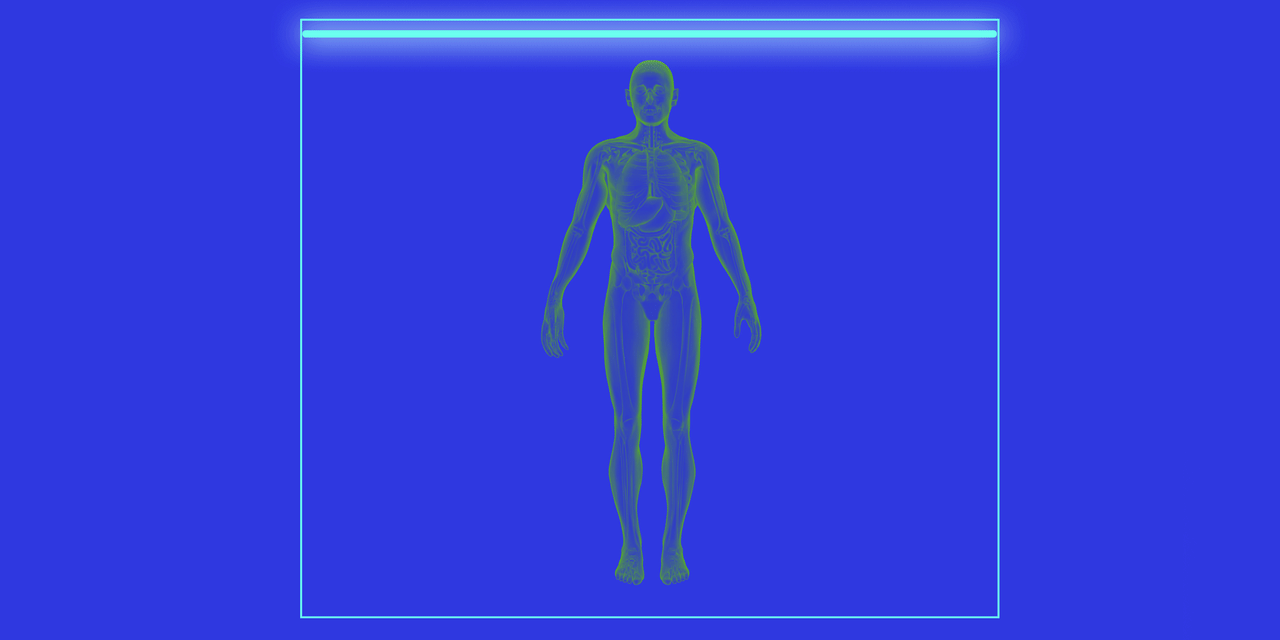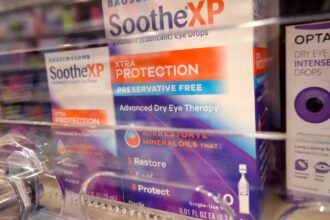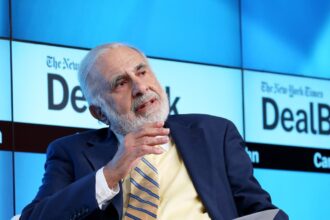Sam Nazarian of Los Angeles got a full-body scan in October, expecting it would find nothing.
Instead, Fountain Life, the company conducting the magnetic resonance image (MRI) scan, told the 48-year-old he had a dangerous aneurysm in his head.
Nazarian, who founded SBE, a hospitality company, had surgery to clip the aneurysm in November. Without the operation, the surgeon told Nazarian the aneurysm would have burst in a few years with a 50% chance of killing the hotelier.
“It saved my life,” Nazarian says of the scan.
Full-body MRIs and computed tomography (CT) scans are being marketed by companies like Fountain Life, Prenuvo, and Ezra as life-saving tools for finding cancers, aneurysms, and heart disease years before symptoms arise.
But many radiologists and cancer doctors say these scans don’t make sense for healthy people with no symptoms or special risk factors. They say the scans seldom find dangerous cancers but regularly produce “false positives” for things like noncancerous cysts that don’t pose health risks.
“For average risk individuals, I can’t really see any upside,” says Dr. Therese Bevers, medical director of the Cancer Prevention Center at the University of Texas MD Anderson Cancer Center in Houston. “You’re going to be screened and screened and screened, and never really find cancer, but find a lot of incidental things that can lead to workups and biopsies.”
The CT scans are relatively cheap and do a much better job of finding clogged arteries than MRIs. However, doctors are reluctant to prescribe them too often because patients get a dose of radiation.
Dr. David Fein, medical director of the Princeton Longevity Center in New Jersey, likes to give CT scans to middle-aged patients to check for early heart disease. If the scan finds early clogging of the arteries, patients can change their lifestyle or, if necessary, start taking medicines like statins to lower their cholesterol levels.
“With a CT scan, I can pick up the earliest bit of plaque in a 40-year-old, and start treating him now before he has that heart attack at 60,” Fein says.
MRIs are best at finding cancer. Unlike CT scans, they don’t involve radiation. But MRIs from labs like Prenuvo and Ezra often cost $2,000 or more, and insurance usually doesn’t cover them. For upscale consumers who want the utmost information on their health, Fountain Life offers both MRIs and CTs among a battery of other scans and blood tests. Customers pay as much as $19,500 for that, depending upon whether they want to keep consulting with Fountain Life doctors after the tests or take the results to their doctors.
Dr. Bevers says she orders full-body MRIs only for patients with a rare syndrome called Li Fraumeni. These patients have at least a 70% chance of getting cancer in their lives and get scanned yearly.
Dr. Ryan Brunsing, a radiologist and director of MRI at Stanford Hospital and Clinics, has similar views. He also worries that patients will get the full-body scans that find no cancers, figure they are OK, and not get other cancer-screening tests. “I don’t want people to view this as a replacement for standard cancer detection methods,” he says. “Oh, I have a clean bill of health. I won’t get a Pap smear or a mammogram.”
These doctors aren’t outliers. The American College of Radiology has released statements saying there was insufficient evidence for recommending either MRI or CT full-body screens for “patients with no symptoms or family history suggesting disease.”
The labs marketing the scans disagree. They say the scans sometimes find major health problems that would otherwise go unnoticed for years. Fountain Life claims that 14% of its members have a life-threatening finding.
“The human body is extraordinarily good at hiding disease,” says Peter Diamandis, Fountain Life’s co-founder. “You don’t have symptoms from a cancer until it’s stage 3 or stage 4. By the time you feel something, and you go into the doctor’s office and say, ‘let’s take a look,’ it’s too late.”
Jessica Jensen, the 52-year-old chief marketing officer for job listings website Indeed, got a Prenuvo full-body scan in 2021 and found—to her surprise—she had early-stage pancreatic cancer. She had surgery to remove the tumor and is now fine.
Now, she is doing a full-body scan every year and has been urging all her friends to get scanned. One of the scans found thyroid cancer in a friend, Jensen says.
She longs for the day when the scans are routine procedures covered by insurance and prices drop. “I really hope the scans become cheaper and more ubiquitous,” she says.
Write to Neal Templin at [email protected]
Read the full article here










